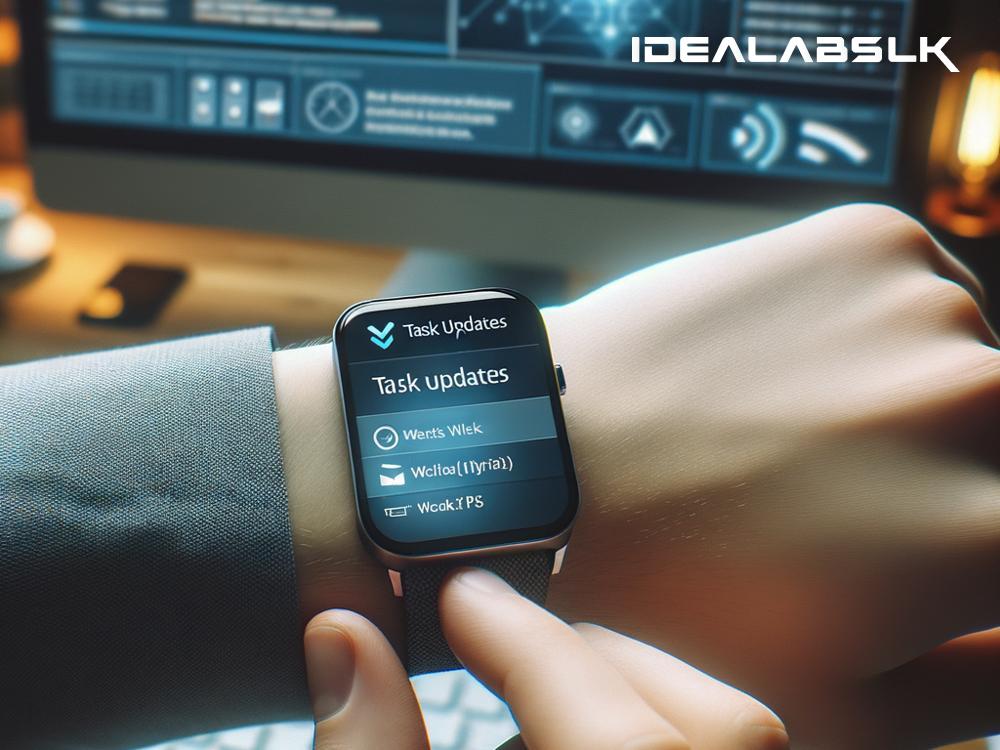How AI Is Transforming Our Lives with Real-Time Task Management Gadgets
In today's fast-paced world, managing daily activities, tasks, and reminders efficiently is more crucial than ever. Enter Artificial Intelligence (AI), a game-changer in how we interact with our gadgets to keep our lives organized. AI, with its remarkable ability to learn and adapt, is at the forefront of revolutionizing real-time task management through smart devices and apps. In this article, we'll dive into the world of AI-powered task management gadgets and explore how they're making our lives simpler, one task at a time.
Understanding AI in Simple Terms
Before we delve deeper, let's break down what AI really means. Imagine teaching a child to recognize different fruits. You show them apples, bananas, and oranges, explaining which is which. Eventually, the child learns to identify each fruit on their own. AI works in a somewhat similar manner; it learns from the data (in this case, tasks and preferences) you feed it, making intelligent decisions based on that learning.
AI in Real-Time Task Management
Task management gadgets such as smartwatches, smartphones, and smart home devices are increasingly becoming indispensable parts of our lives. Embedded with AI, these devices can now understand your preferences, predict your needs, and assist you in managing your tasks more efficiently than ever before.
1. Personalized Reminders
Ever wonder how your smartphone seems to know exactly when to remind you to leave for an appointment or to drink water? AI algorithms analyze your schedules, routines, and even traffic conditions in real-time to provide personalized reminders. Over time, as the AI learns more about your habits, these reminders become even more precise, ensuring you're always ahead of your schedule.
2. Voice-Activated Assistants
Voice-activated assistants like Siri, Google Assistant, and Alexa have become personal task managers, thanks to AI. You can ask these assistants to set reminders, make phone calls, send messages, or even order groceries, all without lifting a finger. The AI behind these assistants understands natural language, making interaction as seamless as talking to another human.
3. Smart Home Integration
AI has paved the way for smart homes where gadgets communicate with each other to manage tasks. For example, a smart refrigerator can keep track of groceries and suggest shopping lists, while AI-powered thermostats learn your preferences to adjust the temperature automatically. This level of integration allows for a hands-off approach to managing daily chores, saving time and energy.
4. Real-Time Prioritization
One of the standout features of AI in task management is its ability to prioritize tasks in real-time. By analyzing your calendar, emails, and to-do lists, AI can suggest the most critical tasks for the day. This not only helps in staying organized but also ensures that no important task falls through the cracks.
5. Learning and Adapting
Perhaps the most impressive aspect of AI is its ability to learn and adapt over time. You might start using a smart device or app for basic task management, but as the AI observes your behavior and preferences, it begins to offer more tailored suggestions, becoming more effective in helping manage your day.
The Benefits
The integration of AI in task management gadgets offers several tangible benefits, including:
- Increased Productivity: By automating routine tasks, AI lets you focus on more critical tasks at hand.
- Time Savings: AI's predictive capabilities and efficient management save valuable time, which can be invested elsewhere.
- Personalized Experience: AI tailors its suggestions and reminders based on personal preferences, making task management more effective.
- Stress Reduction: With AI handling task management, there's less to worry about forgetting or overlooking tasks, reducing daily stress.
Looking Ahead
As AI technology continues to evolve, we can expect even smarter task management solutions that'll further simplify our lives. The potential for AI to understand contextual information and make even more accurate predictions will transform how we manage our day-to-day tasks.
Conclusion
AI-powered real-time task management is no longer a futuristic concept—it's here, making our lives more manageable and organized. By understanding our needs and adapting to our preferences, AI in gadgets and apps is becoming an indispensable tool in mastering the art of task management. As we continue to embrace these technologies, it's clear that AI is shaping a future where managing our time and tasks could be effortless, enabling us to lead more productive and fulfilling lives.

